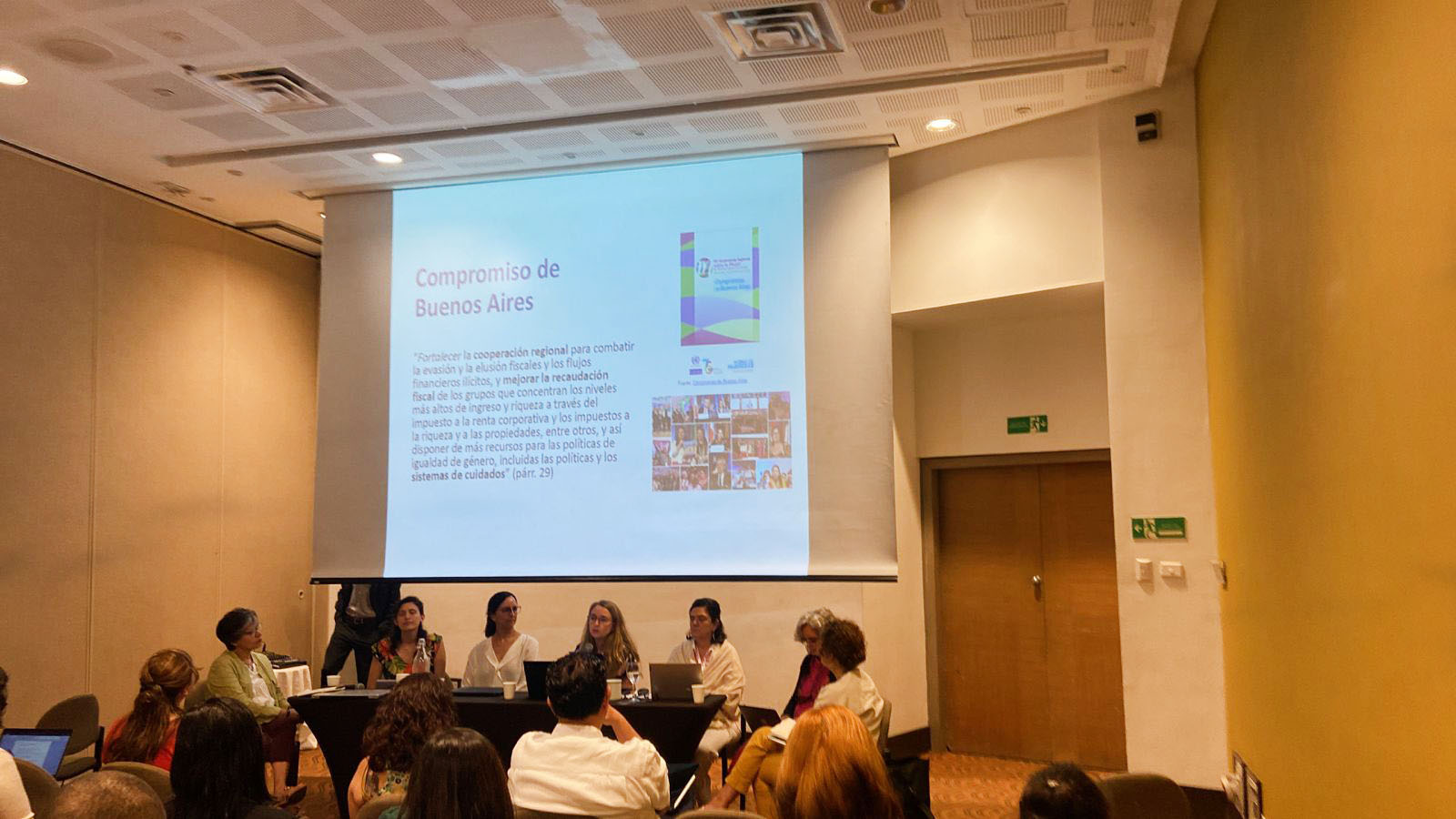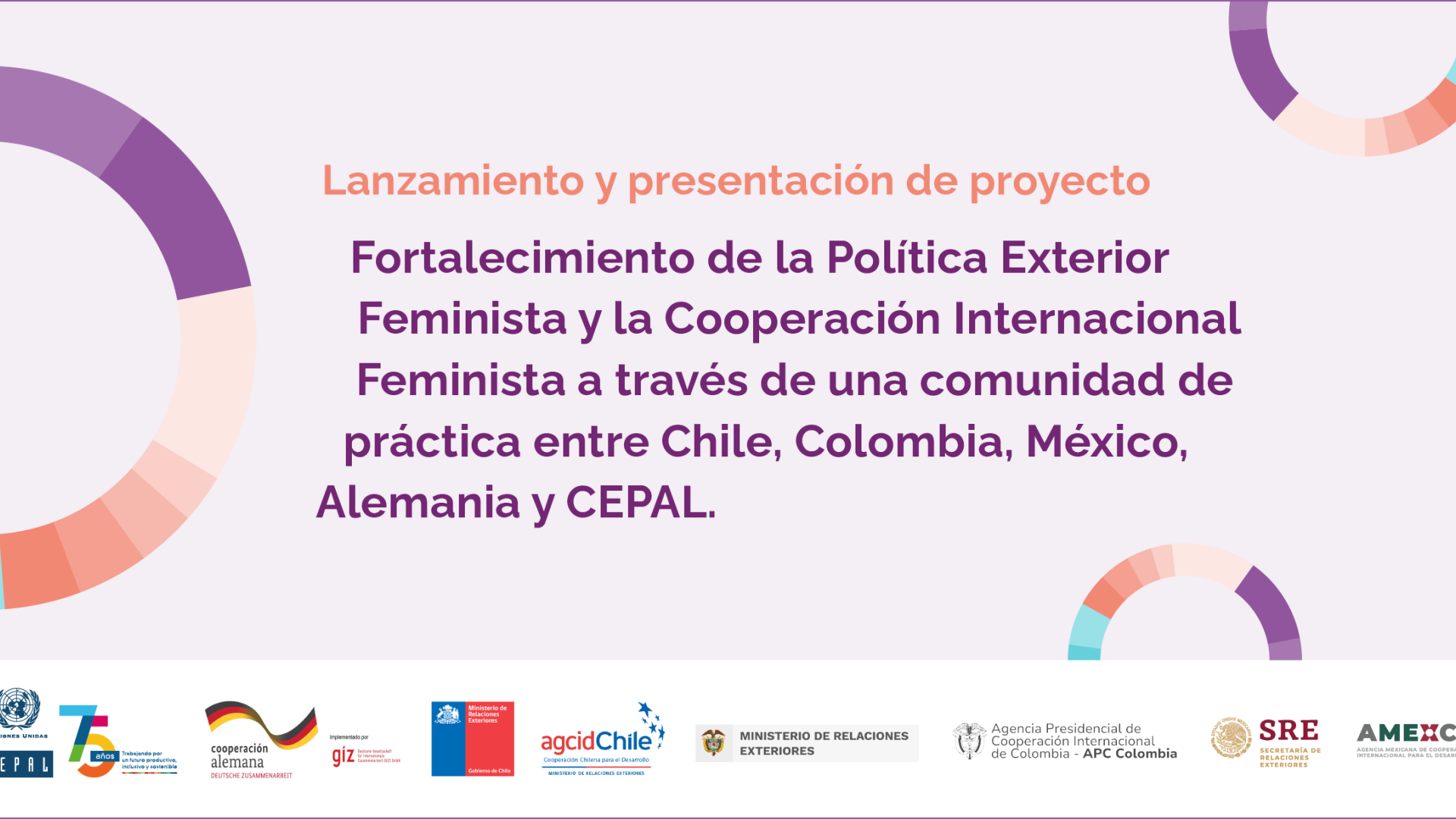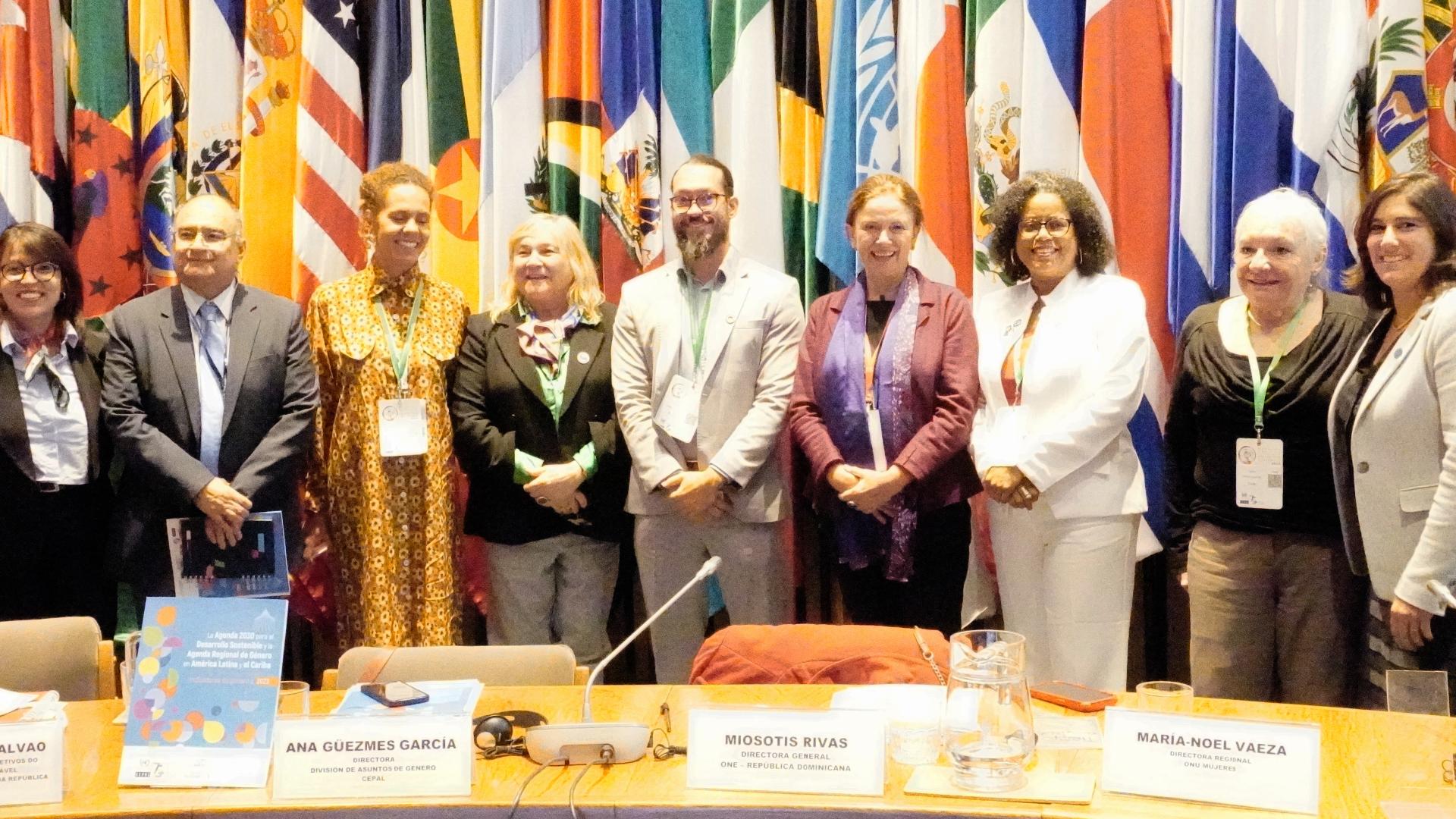News
The Division for Gender Affairs of the Economic Commission for Latin America and the Caribbean (ECLAC) participated in the panel "Fair tax systems to finance care", in the meeting "For a fiscal pact to sustain life in Latin America and the Caribbean: Towards an inclusive, equitable and transparent taxation". This activity was part of the side events organized by civil society in the context of the First Ministerial Summit of Latin America and the Caribbean for an inclusive, sustainable and equitable Global Tax Order.
Nicole Bidegain Ponte, Social Affairs Officer of the Division for Gender Affairs (DGA) of the United Nations Economic Commission for Latin America and the Caribbean (ECLAC), stressed that fiscal policy is not neutral to gender inequalities since it affects men and women differently in their roles as workers, producers, consumers and those responsible (or not) for unpaid care work. Among the main tax challenges in Latin America and the Caribbean, she mentioned the low levels of tax revenue, regressive tax structures with implicit gender biases, and high tax exemptions, public debt, and levels of illicit financial flows. At the same time, she referred to the need for additional resources to meet the growing demand for care and the deepening of gender inequalities in the region.
She pointed out that ECLAC estimates that income tax and VAT evasion in Latin America is equivalent to 6.1% of the regional GDP of 2018. To this, the additional problems of cross-border evasion and avoidance and illicit financial flows are compounded.
In this regard, Bidegain Ponte stressed that at the XV Regional Conference on Women in Latin America and the Caribbean, ECLAC member States agreed in the Buenos Aires Commitment: "Strengthen regional cooperation to combat tax evasion and avoidance and illicit financial flows, and improve tax collection from the wealthiest and highest-income groups (...) in order to have greater resources for gender equality policies, including care policies and systems " (ECLAC, 2022, para. 29).
The Social Affairs Officer of the DGA pointed out the need to promote fiscal compacts that promote gender equality as a central element to move towards a care society. This would mean increasing revenue progressively and putting an end to tax evasion and avoidance, allocating sufficient resources for gender equality policies and boost investment in care.
She concluded her presentation by referring to the Resolution adopted by the General Assembly on the promotion of inclusive and effective international tax cooperation at the United Nations. The resolution established the initiation of intergovernmental discussions on taxation by assessing options, including an instrument of cooperation to be agreed through a United Nations intergovernmental process (United Nations, 2022, Resolution A/RES/77/244, para. 2). In this context, Nicole Bidegain Ponte highlighted the relevance of the First Ministerial Summit of Latin America and the Caribbean for an inclusive, sustainable and equitable Global Tax Order as a space for building regional positions for the international tax debate. These reflections were presented in the context of the collaboration between the DGA and the Independent Commission for the Reform of International Corporate Taxation (ICRICT), which had as a background the event organized jointly at the XV Regional Conference on Women in Latin America and the Caribbean on ending tax evasion and avoidance for implement care policies (see information note).
The side event was also attended by Corina Rodríguez Enríquez and Noelia Méndez from the Centro Interdisciplinario para el Estudio de Políticas Públicas (CIEPP), Luiza Nassif Pires, Director of the Research Center on Macroeconomics of Inequalities (MADE) of the University of São Pablo, and Ana Isabel Arenas of the Mesa de Economía del Cuidado of Colombia and was moderated by Verónica Serafini of Latindadd.
The First Ministerial Summit of Latin America and the Caribbean for an inclusive, sustainable and equitable Global Tax Order, context in which the previous panel was developed as a parallel activity was held on July 27 and 28 in Cartagena de Indias, Colombia, with the presence of authorities from the Ministries of Finance and Economy of 16 countries in the region and representatives of international, regional and civil society organizations. ECLAC supports and acts as the technical secretariat for the platform that was launched and that seeks to coordinate joint actions on tax matters among the countries of the region. The Summit closed with a press release by the Government of Colombia in its capacity as the first president pro tempore.



